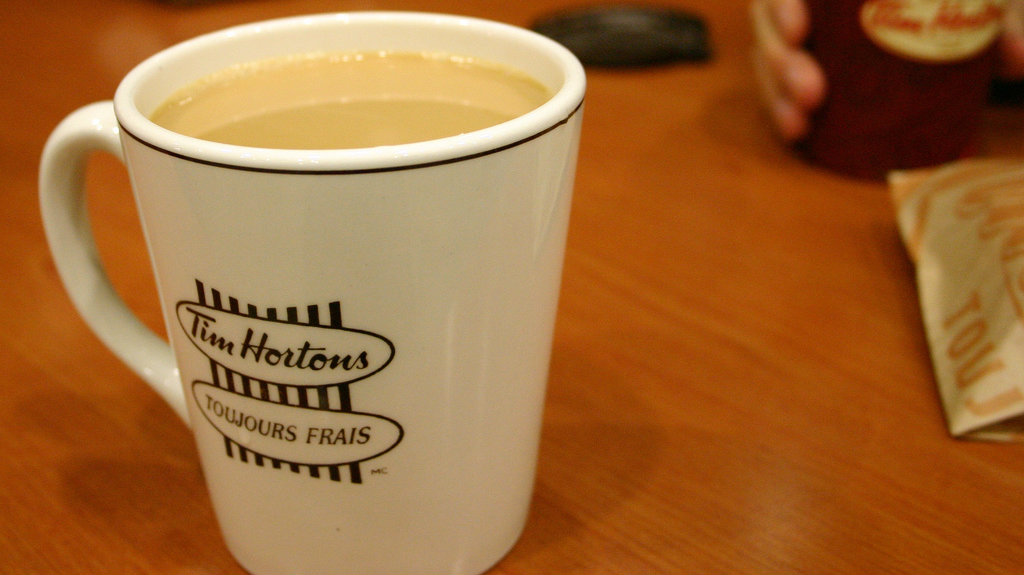In the span of four days last week, the Globe and Mail published four stories about Tim Hortons, all of them bad, which tells Restaurant Brands International Inc. (TSX:QSR)(NYSE:QSR) shareholders all they need to know about the state of affairs at one of the company’s three restaurant franchises.
This shouldn’t come as a surprise to Restaurant Brands shareholders.
I’ve personally been harping about how tone deaf CEO Daniel Schwartz and the rest of the Restaurant Brands management team is; only recently does it seem that investors are paying closer attention to the happenings at what used to be one of Canada’s most iconic brands.
Its stock is down below $70 for the first time since early 2017. Supporters of the company point to its lovely dividend and strong cash flow as evidence that investors are facing a value proposition like few others.
You should buy, buy, buy.
I don’t quite see it that way. In fact, I see the Tim Hortons saga ending badly for Restaurant Brands shareholders. Here’s why.
Company has lost control of franchisees
On April 9, the paper highlighted the dispute between the Great White North Franchisee Association (GWNFA) and the TDL Group, which saw the company deny Toronto franchisee Mark Kuziora the 10-year renewal he and his wife had sought prior to the end of the existing licence agreement on August 31.
Kuziora is one of the franchisees behind the formation of the GWNFA.
Coincidence? I think not.
On April 10, Tim Hortons was forced to publicly apologize for one of its franchisees in the Halifax area undertaking an unauthorized Humboldt Broncos tribute by selling doughnuts with white frosting and green and yellow sprinkles. Although the franchisee made a personal donation, the proceeds weren’t earmarked for all those involved in the Humboldt tragedy.
Given the brand’s connection to hockey, you would think a company of this size would be in front of the story, but Tim Horton’s relationship with its franchisees has become so fraught with mistrust, it can’t even get a kind gesture done properly.
On April 12, Navdeep Bains, the minister of Innovation, Science and Economic Development for the federal government, announced that his ministry would investigate claims made in an April 3rd letter by the GWNFA that Restaurant Brands has breached the commitments it made in 2014 to the federal government to receive permission to buy Tim Hortons.
“GWNFA has been the only group advocating for the Canadian franchisees and trying to salvage this great Canadian icon from the egregious management policies and practices that RBI has put in place,” stated GWNFA president David Hughes in an interview with the paper.
Frankly, if I owned shares of Restaurant Brands, I’d be worried that this resistance from Tim Hortons franchisees spreads to Burger King and Popeyes.
Brand’s deterioration
Finally, on April 11, the Globe ran an opinion piece, “How Tim Hortons lost its connection with the Canadian public,” by Sylvain Charlebois, a Dalhousie professor who specializes in the food industry.
Charlebois highlighted how the Tim Hortons brand fell from fourth spot all the way to 50th in an annual ranking of Canada’s most admired companies. I would think that’s unheard of in marketing circles.
Charlebois points to the company forcing franchisees to pay $450,000 per outlet to improve the customer experience.
“RBI’s message to franchisees is quite simply this: Pay up or leave. RBI’s intent is clearly to renew its portfolio of franchisees and deal with operators who are more inclined to buy into the parent company’s philosophy,” wrote Charlebois. “Not a great move on its part, if reputation is a metric it cares about as a company.”
3G Capital, the majority owners of Restaurant Brands along with Warren Buffett, came to Canada specifically to save money on taxes while squeezing as much out of franchisees as it possibly could.
Now that taxes are cheaper down south, Restaurant Brands is likely to move back to Miami to save some more money.
It’s very sad
Restaurant Brands has destroyed much of Tim Hortons’s goodwill. Unless it changes its tune relatively quickly, which I don’t see happening, it’s going to have a hard time selling off the coffee brand, let alone reviving it to its former glory.
As I said, I don’t see this ending well for its shareholders.







